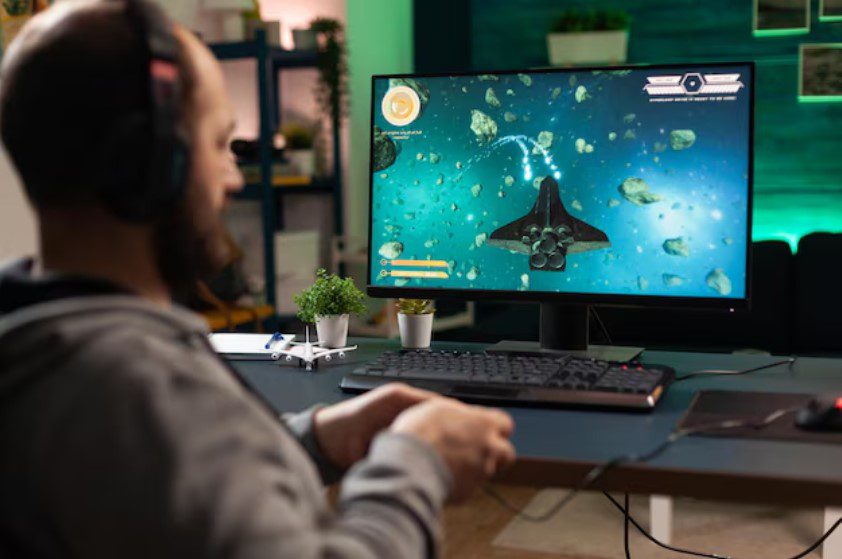Online games have transformed from simple forms of entertainment to complex virtual worlds with thriving economies, complete with their own currencies, trade systems, and value chains. As these virtual economies become more advanced, ethical questions arise.
How should game developers handle in-game currencies? Is it ethical to sell virtual items for real money? Should players be able to make a living by playing games?
This article dives into the ethical complexities of virtual economies in online games, where digital worlds and real-world values intersect.
The Rise of Virtual Economies in Gaming
In the early days of gaming, players were primarily concerned with finishing levels, achieving high scores, and maybe collecting a few rare items along the way. Today, however, virtual economies are embedded within many Malaysia online casino games, creating value systems that affect both gameplay and the real world.
Massively Multiplayer Online Games (MMOs) and online worlds like World of Warcraft, Second Life, and Fortnite allow players to buy, sell, and trade digital goods with real or in-game currency. Players can even make real-world profits by trading in-game items or currency through secondary markets.
Key Components of Virtual Economies
Virtual economies within games function much like real-world economies, with various elements contributing to their structure and ethics:
| Component | Description |
| In-Game Currency | A currency used within the game that can sometimes be purchased with real money or earned through gameplay. |
| Virtual Goods | Items like skins, weapons, outfits, or other digital assets that enhance gameplay or player appearance. |
| Trading Systems | Mechanisms for players to buy, sell, or trade items with each other, often creating secondary markets. |
| Microtransactions | Small, in-game purchases, typically for virtual goods or currency, may be cosmetic or impact gameplay. |
| Play-to-Earn (P2E) | Systems allow players to earn real money through gameplay, either directly or by selling in-game assets in marketplaces outside the game. |
These components contribute to the rise of virtual economies, but they also introduce ethical questions and dilemmas.
Ethical Concerns in Virtual Economies
The shift from purely entertainment-based games to ones with real economic stakes has led to various ethical issues, ranging from player exploitation to concerns about gambling. Below are some of the main ethical concerns that arise in virtual economies at https://www.v3377.net/my/en-us/.
1. Gambling and Microtransactions
Many games today feature microtransactions, often in the form of loot boxes or randomized in-game items. While loot boxes offer the thrill of chance, they are frequently compared to gambling, as players spend money without a guaranteed return on their investment. Critics argue that these mechanics exploit players, especially younger ones, by encouraging them to spend more in pursuit of rare items. Additionally, some countries have begun regulating loot boxes as gambling, highlighting the ethical issues surrounding these mechanics.
2. Exploitation of Low-Wage Players
In some games, particularly those with Play-to-Earn (P2E) models, players can earn real-world money by participating in virtual economies. However, in practice, these P2E systems often rely on low-wage players from economically disadvantaged regions. These players put in countless hours to earn digital assets or currency, only to sell them for minimal real-world compensation. Some critics view this as a form of digital labor exploitation, as companies and wealthier players benefit at the expense of lower-income participants.
3. Economic Inequality in Virtual Worlds
The virtual economies in many games tend to mimic real-world economic inequalities. Players who spend more money on microtransactions or purchase rare items from secondary markets often have a significant advantage over others. This can create a “pay-to-win” dynamic, where wealthier players dominate the game. Such disparities can discourage players who either cannot afford to invest or who prefer to succeed based on skill rather than spending.
The Role of Developers: Responsibility or Profit?
Game developers have a unique role in shaping virtual economies. They create the rules, control the in-game currencies, and set the prices for virtual goods. But should they prioritize player enjoyment, or are they justified in maximizing profit?
Balancing Profit with Player Welfare
Developers often design virtual economies to encourage spending, but ethical developers should strive to balance profit with player welfare. For example, implementing fairer pricing, offering non-monetary ways to earn virtual goods, or providing parental controls for younger players can make the gaming experience more equitable and enjoyable.
Transparency in Game Mechanics
One way to address ethical concerns is through transparency. Developers can disclose the odds of obtaining rare items in loot boxes, clearly explain the value of the in-game currency, and be upfront about any data collection. When players understand what they’re investing in, they can make more informed decisions, which can reduce the feeling of exploitation.
Encouraging Responsible Play
Developers can also encourage responsible play by limiting how much money or time players can spend on virtual goods, or by providing in-game reminders to take breaks. Features like these can mitigate some of the negative impacts of virtual economies on players’ mental health and financial well-being.
Conclusion
The ethics of virtual economies in online games is a complex topic, blending digital experiences with real-world implications. As virtual economies continue to evolve, game developers and players alike must consider how to navigate this landscape responsibly. For developers, the challenge is to balance profit motives with player welfare, ensuring that virtual economies enhance gameplay rather than exploit it. For players, understanding the implications of these economies can help them make informed choices about their engagement.
In the end, as we continue exploring these virtual worlds, maintaining a strong ethical foundation will be key to creating enjoyable, fair, and sustainable gaming experiences for all.

